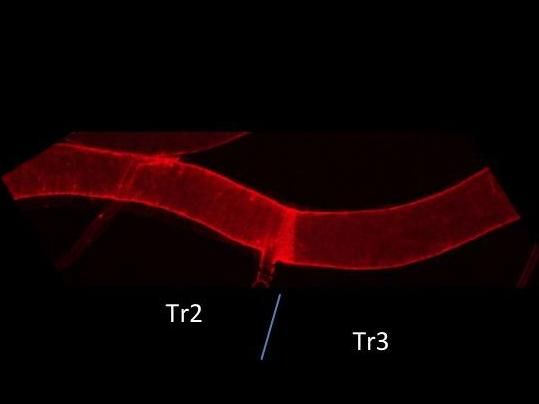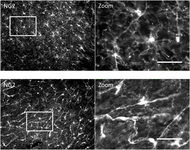Multiple sclerosis: T cells as serial killers
In multiple sclerosis, the immune system also damages the nerve cells with its misguided activities. This is what regularly happens in the targeted immunological attack on the myelin sheaths of the nerve cells, as shown experimentally for the first time by researchers from Würzburg and Zürich.
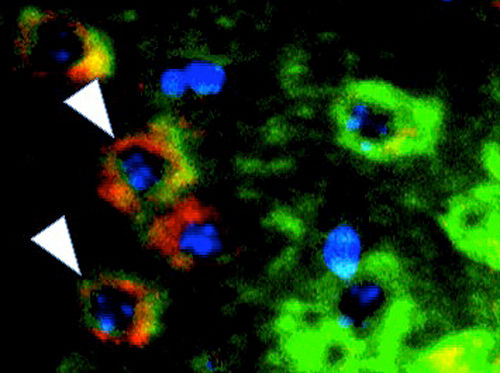
Living tissue from the cerebral cortex of mice: Nerve cells are shown in green, their nuclei in blue. If you add T cells specialized in destroying myelin-generating cells, significant amounts of nerve cells also die off within six hours. They are displayed in red or yellow in the picture. The arrows point to the dead nerve cells.
Heinz Wiendl
Inflammations in the central nervous system can be triggered by viruses or by the immune system. The latter is the case in multiple sclerosis. With drastic consequences: The cells responsible for building and maintaining an insulating sheath around the nerve fibers die off. The sheaths degenerate as well and often even the nerve cells are destroyed eventually.
"In the example of multiple sclerosis, not only the loss of the myelin sheaths but particularly the death of the nerve cells is thought to be decisive for the permanent disabilities that many patients have to deal with," says Professor Heinz Wiendl at the Department of Neurology of the University of Würzburg. Such disabilities include paralysis or impaired vision.
Now, for the first time, two study groups have simultaneously shown that certain T cells of the immune system not only directly affect the myelin-generating cells but also cause "collateral damage" to the nerve cells or their extensions. The research has been published in the journals Glia and American Journal of Pathology.
T cells: Indirect effect causes nerve cells to die
Wiendl's team at the Department of Neurology of the University of Würzburg was able to demonstrate this with brain tissue cultures: T cells exclusively targeting a specific structure on the surface of the myelin-generating cells also caused a significant loss of nerve cells within just a few hours. How this indirect effect might be accounted for is explained by Würzburg researcher Sven Meuth: "Possibly, the T cells release some soluble factors, such as perforin or granzyme B, which in turn migrate to and damage the nerve cells."
Serial murder: Each T cell strikes many times
The aggressive T cells act just like serial killers: "Every single one of them can kill off up to 30 myelin-generating cells and - at the same time - destroy up to ten nerve cells," says Heinz Wiendl.
These T cells virtually cut through the extensions of the nerve cells. This has been established by the team headed by Professor Norbert Goebels of the University of Zürich (now Düsseldorf) in a similar experimental approach by means of video analysis.
Possible target for new therapies
"These results help us to better understand the development of acute and chronic damage in inflammations of the central nervous system," explains Professor Wiendl. In future, the patients might also benefit from the findings - after all, the aggressive T cells are an attractive target for new therapies. Therefore, the Würzburg scientists are eager to find out as much as possible about these serial killers.
Original publications: Göbel K et al.; "Collateral neuronal apoptosis in CNS gray matter during an oligodendrocyte-directed CD8(+) T cell attack"; Glia 2009
Sobottka B et al.; "Collateral bystander damage by myelin-directed CD8+ T cells causes axonal loss"; American Journal of Pathology 2009; 175(3):1160-6
Melzer N, Meuth SG, Wiendl H; "CD8+ T cells and neuronal damage: direct and collateral mechanisms of cytotoxicity and impaired electrical excitability"; FASEB Journal 2009
Topics
Organizations
Other news from the department science

Get the life science industry in your inbox
By submitting this form you agree that LUMITOS AG will send you the newsletter(s) selected above by email. Your data will not be passed on to third parties. Your data will be stored and processed in accordance with our data protection regulations. LUMITOS may contact you by email for the purpose of advertising or market and opinion surveys. You can revoke your consent at any time without giving reasons to LUMITOS AG, Ernst-Augustin-Str. 2, 12489 Berlin, Germany or by e-mail at revoke@lumitos.com with effect for the future. In addition, each email contains a link to unsubscribe from the corresponding newsletter.
Most read news
More news from our other portals
Last viewed contents
Green energy management - How plants cope with variable light conditions
Actelion submits the registration dossier for macitentan to EMA
ProtAffin AG strengthens Scientific Advisory Board

Study of skin biopsies offers potential as new diagnostic marker for Amyotrophic Lateral Sclerosis - The discovery of this biomarker detectable in small skin samples can be very useful for cases in which diagnosis is difficult
Memory in neural circuits
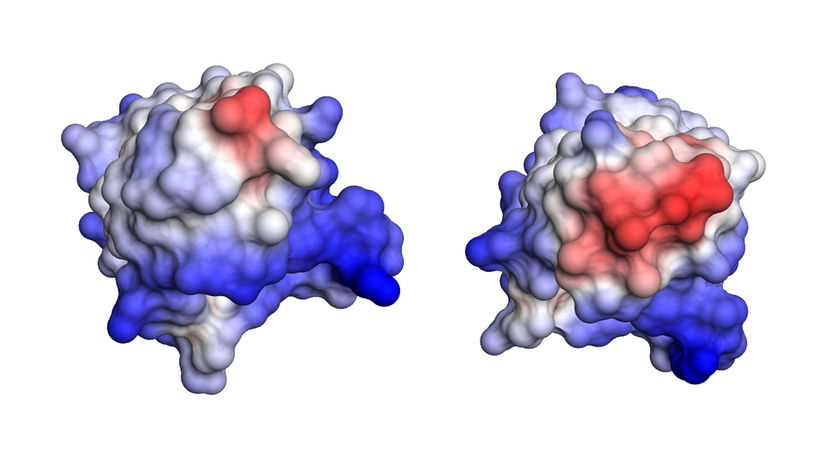
Fatal overproduction of antibodies - Mutations in plasma cells play a key role in light chain amyloidosis
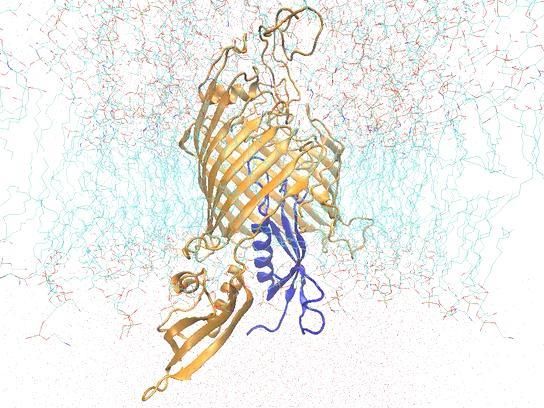
Click... Resistant bacteria caught in the act! - Scientists have succeeded in capturing unique images of protein soldiers that help bacteria resist drugs
Hesperion announces the opening of its Russian Moscow Office

Takara Bio and Eppendorf cooperate - Automation of Takara Bio’s Chemistries on Eppendorf’s Automated Pipetting Systems for Significantly Higher Efficiency
New genetic links to MS also play roles in other autoimmune diseases

Dust mite allergens trigger inflammatory responses - Dust mite allergens activate the pulmonary immune system, thereby triggering allergies
